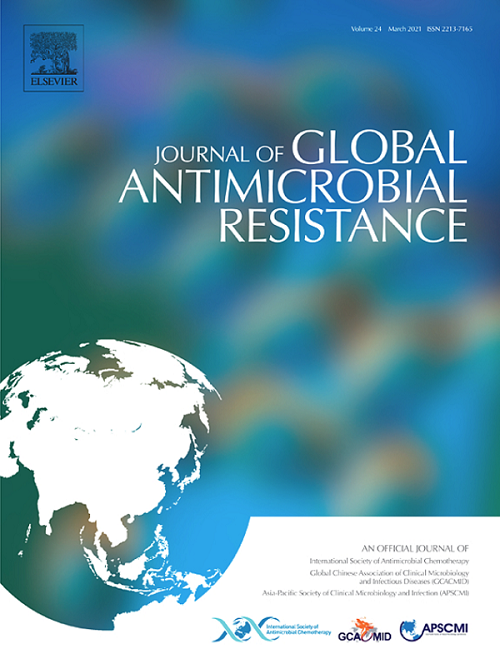Faecal microbiota transplantation to decolonize vancomycin-resistant Enterococcus: A pilot study to evaluate safety and clinical outcome
IF 3.7
3区 医学
Q2 INFECTIOUS DISEASES
引用次数: 0
Abstract
Objectives
Faecal microbiota transplantation (FMT) has shown promise as a treatment for recurrent or refractory Clostridioides difficile infections. This study aimed to evaluate the decolonization effects of FMT on vancomycin-resistant Enterococcus (VRE).
Methods
This feasibility trial prospectively recruited patients with more than three recurrent VRE infections. FMT was performed by infusing faecal microbiota solutions from healthy, unrelated donors into the participants’ guts via colonoscopy. Faecal microbiota profiles before and after FMT were analysed.
Results
Three of the six patients (50%) experienced VRE decolonization after FMT, lasting over 6 months. Baseline analysis revealed that patients who achieved decolonization had greater microbial diversity compared to those with persistent VRE colonization. Throughout the study, there were no adverse events observed in the patients after FMT. Elevated alpha diversity persisted in responders, while non-responders showed no significant changes. In responders, the abundance of genera within the phylum Firmicutes (Bacillota), including Anaerostipes, Blautia, Faecalibacterium, and Ruminococcus, and the genus Collinsella within the phylum Actinobacteriota increased steadily through 180 days post-FMT.
Conclusions
FMT may leverage bacterial strain competition to facilitate decolonization of drug-resistant organisms, with successful VRE decolonization potentially linked to increased abundance of phyla Firmicutes and Actinobacteriota over 6 months.
粪便微生物群移植去万古霉素耐药肠球菌:一项评估安全性和临床结果的初步研究。
目的:粪便微生物群移植(FMT)已显示出治疗复发性或难治性艰难梭菌感染的希望。本研究旨在评价FMT对万古霉素耐药肠球菌(VRE)的去菌落作用。方法:本可行性试验前瞻性招募3次以上复发性VRE感染患者。FMT是通过结肠镜检查将来自健康的、不相关的捐赠者的粪便微生物群溶液注入参与者的肠道来进行的。分析FMT前后粪便微生物群分布。结果:6例患者中有3例(50%)在FMT后VRE去殖,持续时间超过6个月。基线分析显示,与持续VRE定殖的患者相比,实现非定殖的患者具有更大的微生物多样性。在整个研究中,FMT后患者未观察到不良事件。反应者的α多样性持续升高,而非反应者则没有明显变化。在应答者中,厚壁菌门(Bacillota)内属的丰度,包括厌氧菌、Blautia、Faecalibacterium和Ruminococcus,以及放线菌门内的Collinsella属的丰度在fmt后180天内稳步增加。结论:FMT可能利用菌株竞争促进耐药生物的去定殖,成功的VRE去定殖可能与厚壁菌门和放线菌门的丰度增加有关。
本文章由计算机程序翻译,如有差异,请以英文原文为准。
求助全文
约1分钟内获得全文
求助全文
来源期刊

Journal of global antimicrobial resistance
INFECTIOUS DISEASES-PHARMACOLOGY & PHARMACY
CiteScore
8.70
自引率
2.20%
发文量
285
审稿时长
34 weeks
期刊介绍:
The Journal of Global Antimicrobial Resistance (JGAR) is a quarterly online journal run by an international Editorial Board that focuses on the global spread of antibiotic-resistant microbes.
JGAR is a dedicated journal for all professionals working in research, health care, the environment and animal infection control, aiming to track the resistance threat worldwide and provides a single voice devoted to antimicrobial resistance (AMR).
Featuring peer-reviewed and up to date research articles, reviews, short notes and hot topics JGAR covers the key topics related to antibacterial, antiviral, antifungal and antiparasitic resistance.
 求助内容:
求助内容: 应助结果提醒方式:
应助结果提醒方式:


